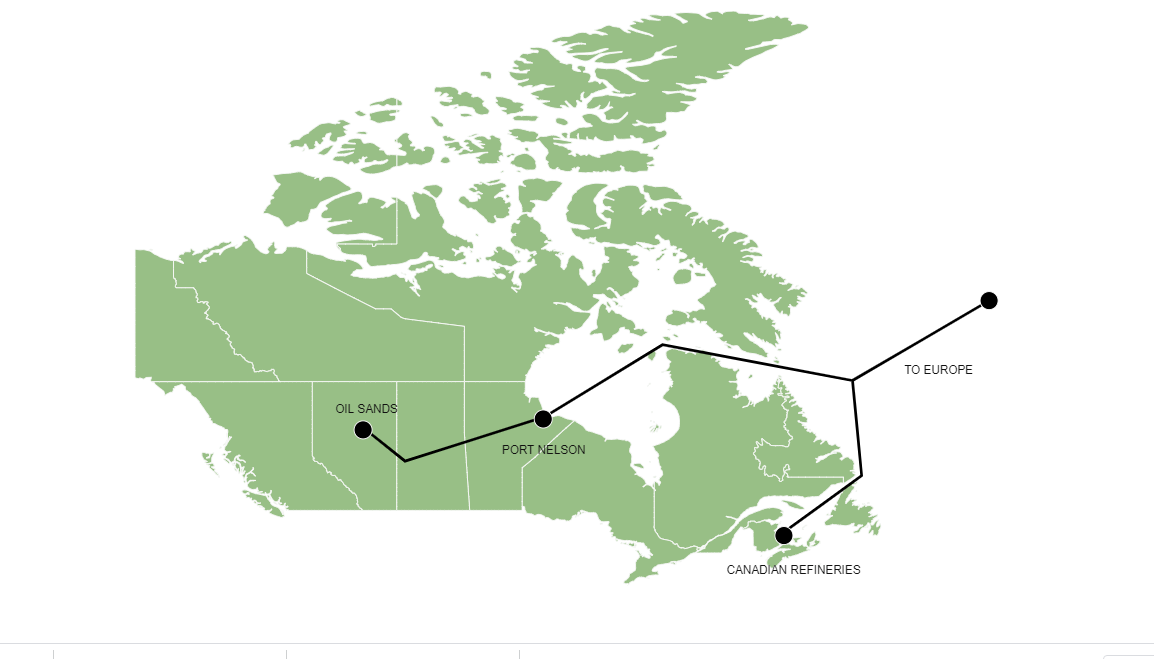Canada’s energy security is top of the news this week with the threatened closure of Line 5, a cross-border Canadian oil pipeline that has been operating since the 1950s. It supplies nearly half of the Ontario and Quebec market for light crude oil, light synthetic crude oil and natural gas. Michigan’s state governor is trying to shut down Enbridge’s existing pipeline, and an associated $500-million tunnel project upgrade, to fight global warming and protect the environment. If she succeeds, the closure would lead to huge job losses and economic disruptions on both sides of the border.
Quebec and Ontario should not place much hope that the climate-woke Biden Administration will fix this. President Biden’s first act in office was to cancel the almost completed cross-border Keystone XL pipeline project. Fully cognizant that Quebec and Ontario are the Trudeau Government’s electoral heartland, the federal government has intervened in hopes that the impasse can be broken and Line 5 will continue. Ironically, Trudeau government’s policy choices over the last several years have been to land-lock western Canada’s oil and gas resources.
Alberta and Saskatchewan producers continue to experience tremendous difficulty in transporting western oil. Quebec vetoed the proposed Energy East pipeline, and Trudeau’s federal government blocked access to Pacific tidewater by cancelling the Northern Gateway pipeline.
These actions have turned Canada into a captive supplier for American markets, with producers forced to accept heavily discounted rates – reducing both the energy industry’s revenues and federal and provincial tax revenues. And, the inability to transport oil and gas through pipelines by pipeline does not cut production, it just shifts them to environmentally-riskier rail and truck transport.
Fortunately, against this overall comparative policy ‘clown show’, there is another option to advance the West’s valid economic interests of accessing both higher valued markets and more tax revenue. A new Manitoba-focused proposal would have a minimal environmental impact, while providing significant opportunities to Indigenous communities in northern Manitoba. It’s called the Nee Sta Nan utility corridor project (neestanan.ca) and it envisions a pipeline running from Alberta to a new Port Nelson seaport on Hudson Bay. The corridor would connect western oil through a much shorter shipping route to international markets in Europe, while simultaneously creating a path westward for Manitoba’s surplus hydroelectric energy to reach Alberta and Saskatchewan’s grids.
Manitoba-based reliable hydroelectric power would replace the current emission-intensive coal and natural gas fired power generation of the Alberta Oil Sands region. It would enable Manitoba Hydro to sell surplus power from the prematurely-built Keeyask dam at decent rates, rather than selling into American markets at bargain basement prices.
The proposed Nee Sta Nan utility corridor project would be built in partnership with Indigenous communities co-located along the corridor. The proposal represents an unprecedented level of political will and collaboration between disparate Indigenous communities, and a significant path towards improving Indigenous communities in Manitoba and in other Western provinces.
The proposed corridor is a textbook example of what would be a win-win-win all around. Manitoba and federal policy makers should understand and support the Port Nelson gateway corridor proposal.
It is a logical and politically smart way out of recently muddled and self-defeating energy policy impasses.
Joseph Quesnel and Peter Holle are both with the Frontier Centre for Public Policy. www.fcpp.org



